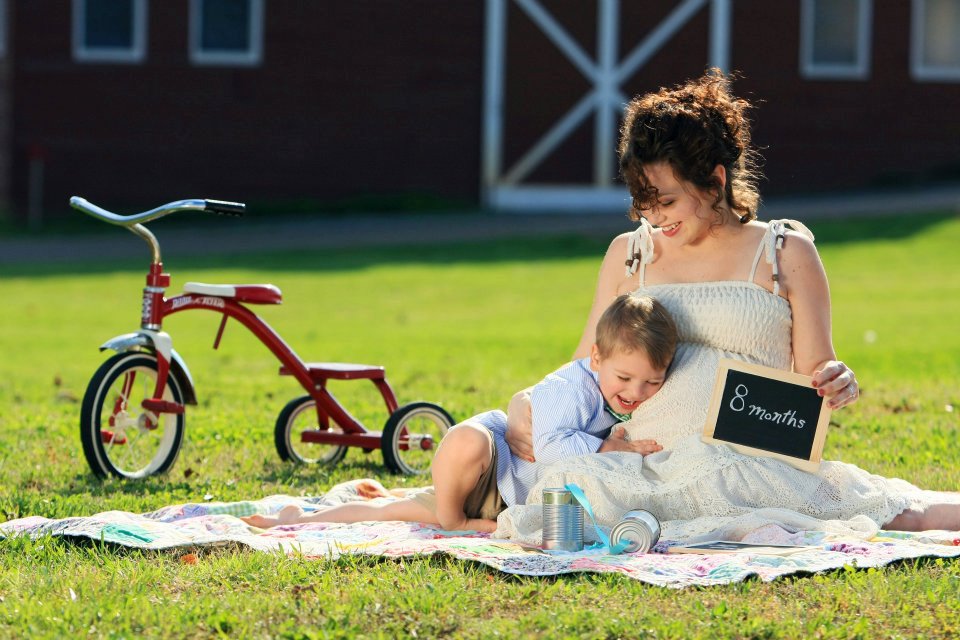My son was crawling at six months and walking at ten. My daughter seems to be following in his footsteps (no pun intended) and began taking steps at eight months. “Wow!”, people said. “That’s crazy!”, they said. “You go girl!”, they said. “Mine didn’t start walking until 15 months.”
“Well, all of mine walked before a year”.
“Both of mine were late crawlers”.
Now these were all harmless comments, but it got me thinking about a game we mothers often play.
The comparison game.
I’ve done it. You’ve done it. As moms, we’ve all done it . Yes, all these remarks can start out innocently enough, but I think if we really look deep down, we’ll admit that at one point or another, we’ve secretly praised ourselves or wondered where we went wrong when conversing with other moms. Sometimes it’s over things we realize we have little to no control over (walking, talking) and sometimes it’s over things we think we have a little more control over (discipline, sleeping habits). I know this all too well.
When our son turned two, I started the beginning steps of potty training. He was doing fairly well, but I had recently become pregnant and was very nauseated and plain old tired. I decided to stop. Cleaning up poopy accidents and climbing up and down stairs for new underwear just became too much. I would start again after our daughter, Miriam, was born. Our baby girl arrived and a few months went by. Time to start potty training again. But by now, Ian was nearly three. I only had a few months to get this done! I read books, asked for advice, bought a great new potty, let him pick out fun superhero underwear…and quickly became very frustrated.
This was not working.
Ian knew just what to do, but was just not willing to do it! A few moms had made comments, “Potty training is so easy! My daughter started at 18 months and did great!” “Oh, he’s not trained yet? You’d better get on that. He’s nearly three!” Frustration turned to anger. Before I knew it, I was getting mad at Ian for having accidents. He was old enough to know better! I was doing everything right! I wasn’t going to have a son who was THREE who was still in diapers! People would think I didn’t know what I was doing, that I had no control, that I was a bad mom! Well, there it was. The truth. I wasn’t potty training for Ian’s well being. It was about me. Someone was going to think (heck, was probably already thinking) that I wasn’t a very good mother. That day I decided to stop mentioning “what big boys do” and “how fun underwear were” and just let it go. Ian’s third birthday came and went and he was still in diapers. A few weeks later, on his own, he asked to wear underwear instead of diapers. In another week or so, he was using the potty exclusively. The lesson of this story isn’t that I finally gave up and Ian did what I wanted. I mean, that was a nice bonus, but the point is that I made it all about me. I was prideful and insecure. I translated Ian’s success (or lack of in the beginning) into my own success as a mother.
We all want our children to be smart, responsive, kind, well behaved and (let’s be honest here) liked. There is nothing wrong with that. It becomes a problem when we compare them to others and equate their successes with our own. It’s easy to tell that my kids being earlier walkers have no bearing on anything. It doesn’t make them smarter or better and it doesn’t make me a smarter or better mother. It’s more difficult to tell that my kids’ successes or failures in larger areas are not necessarily my same successes either. Ian learning to use the potty was his success. My success came when I researched, asked advice, prepared and finally saw that my plan wasn’t working and adjusted it according to his needs. That’s what made me “a good mama”, not the fact that Ian was potty trained. Just because another mom has a child that is more “_________” than yours does not make her mothering skills better than yours. Every child is different. If you are educating yourself, and being open to adjustment when needed, you are being a GREAT mother, no matter if your child has caught on or not.
Remember that when you play the comparison game with others, no one wins.

